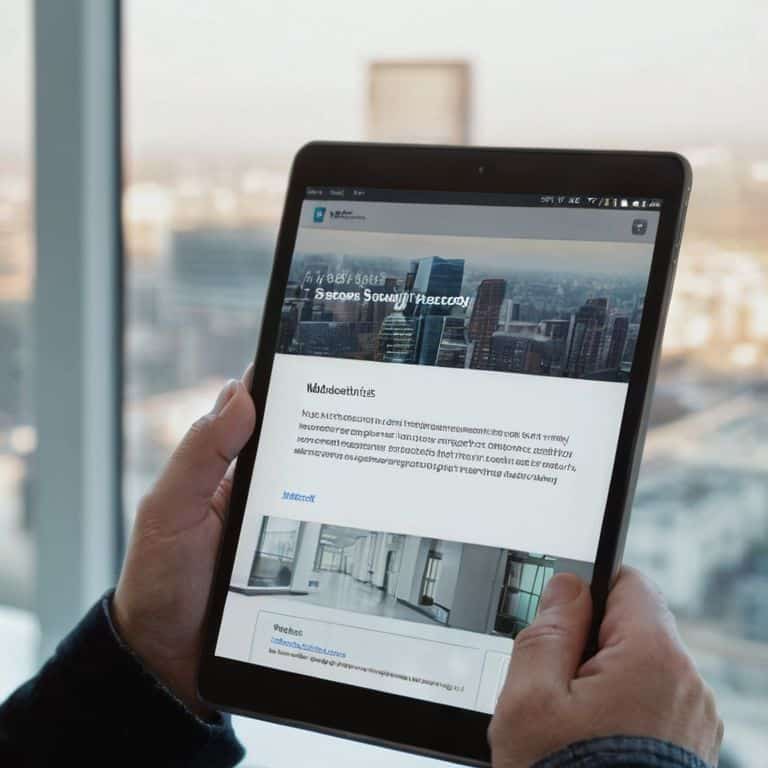I still remember the first time I had to explain what is an ssl certificate to a frustrated client. They had been misled by a web hosting company into thinking that SSL certificates were some kind of luxurious add-on, rather than a fundamental aspect of website security. The reality is that an SSL certificate is more like a necessity in today’s online landscape, and I’m tired of seeing people taken advantage of by overly complicated explanations and expensive solutions.
As someone who’s spent years building and optimizing websites, I’m here to cut through the noise and give you the straightforward advice you need to understand and implement SSL certificates effectively. In this article, I’ll share my real-world experience and provide you with a clear, step-by-step guide on what is an ssl certificate and how to make it work for your website. My goal is to empower you with the knowledge and confidence to take control of your online presence, without breaking the bank or getting lost in technical jargon.
Table of Contents
- What Is an Ssl Certificate
- Demystifying Ssl Certificate Setup
- How to Install Ssl Certificate a Step by Step Guide
- Ssl Certificate Renewal Process Dont Get Caught Off Guard
- 5 Essential SSL Certificate Tips You Need to Know
- Key Takeaways: Simplifying SSL Certificates
- The Bottom Line on SSL Certificates
- Securing Your Online Presence: A Conclusion
- Frequently Asked Questions
What Is an Ssl Certificate

So, what’s an SSL certificate, anyway? Think of it like a special ID card for your website that proves you’re the real deal and keeps your visitors’ data safe from prying eyes. When you have an SSL certificate, your website’s URL will start with https instead of http, indicating that it’s secure. This is especially important for websites that handle sensitive information, like e-commerce sites or blogs with login functionality.
The _importance of SSL certificates for websites_ can’t be overstated. Not only do they protect your visitors’ data, but they also help build trust with your audience. When people see that your site is secure, they’re more likely to stick around and engage with your content. Plus, having an SSL certificate can even give you a boost in search engine rankings. As for the _types of SSL certificates_, there are a few different options to choose from, including domain validation, organization validation, and extended validation certificates.
In terms of setup, the _ssl certificate cost_ can vary depending on the type of certificate you choose and the provider you go with. Some web hosts even offer free SSL certificates, which can be a great option for bloggers on a budget. Once you’ve got your certificate, the _how to install ssl certificate_ process is usually pretty straightforward. Most web hosts will have a step-by-step guide to help you get set up, and some will even handle the installation for you.
Ssl Certificate Cost Is It Worth the Investment
When it comes to SSL certificates, one of the main concerns for website owners is the cost. The price of an SSL certificate can vary depending on the type and provider, but it’s generally a relatively small investment.
I believe that having an SSL certificate is well worth the cost, considering the benefits it provides in terms of security and trust with your website visitors.
Types of Ssl Certificates Choosing the Right One
When it comes to SSL certificates, there are several types to choose from, each with its own set of features and benefits. You’ve got your Domain Validation certificates, which are great for basic websites, as well as Organization Validation and Extended Validation certificates, which offer more advanced security features.
To choose the right one, consider the level of security you need and the type of website you’re running. If you’re handling sensitive information, such as customer data or financial transactions, you’ll want to opt for a certificate with more advanced security features, like wildcard SSL certificates, which can secure multiple subdomains with a single certificate.
Demystifying Ssl Certificate Setup

When it comes to setting up an SSL certificate, many website owners feel overwhelmed by the technical process. However, installing an SSL certificate is a relatively straightforward task that can be completed with a few simple steps. First, you’ll need to generate a Certificate Signing Request (CSR) on your server, which will be used to validate your website’s identity. This process typically involves providing some basic information about your website, such as its domain name and organization name.
Once you’ve generated your CSR, you can purchase an SSL certificate from a trusted provider. The types of SSL certificates available can vary, but most providers offer a range of options to suit different needs and budgets. When choosing an SSL certificate, consider factors such as the ssl certificate cost and the level of validation required. Some SSL certificates, such as EV certificates, offer advanced validation features that can help to increase trust with your website visitors.
To complete the setup process, you’ll need to install your SSL certificate on your server and update your website’s configuration to use https instead of http. This will ensure that all data transmitted between your website and its visitors is encrypted and secure. It’s also important to keep track of your ssl certificate renewal process, as expired certificates can compromise your website’s security and reputation. By following these simple steps, you can quickly and easily set up an SSL certificate and start enjoying the benefits of a secure and trusted website.
How to Install Ssl Certificate a Step by Step Guide
To get started with installing an SSL certificate, you’ll need to generate a Certificate Signing Request (CSR) on your server. This involves creating a public and private key pair, which will be used to authenticate your website. Don’t worry if this sounds complicated – it’s a straightforward process that can be completed in a few minutes.
Once you’ve generated your CSR, you can proceed to install the SSL certificate on your website. The key to a successful installation is to follow the instructions carefully, as minor mistakes can cause issues with your site’s security and accessibility.
Ssl Certificate Renewal Process Dont Get Caught Off Guard
When it comes to SSL certificates, many people focus on the initial setup, but renewal is just as crucial. Failing to renew your SSL certificate can lead to a loss of trust with your visitors, as their browsers will display warning messages, indicating that your site is not secure.
To avoid this, make sure to keep track of your certificate’s expiration date and plan accordingly. Most certificate authorities will send reminders, but it’s still important to stay on top of it to ensure a seamless renewal process and maintain your site’s security and reputation.
5 Essential SSL Certificate Tips You Need to Know

- Verify your website’s identity with a trusted Certificate Authority to ensure your SSL certificate is recognized by most browsers
- Choose the right type of SSL certificate for your website, whether it’s a single-domain, multi-domain, or wildcard certificate
- Keep your SSL certificate up-to-date by setting reminders for renewal and avoiding costly downtime or security vulnerabilities
- Test your website’s SSL configuration using online tools to ensure a smooth and secure browsing experience for your visitors
- Monitor your website’s SSL certificate expiration date and plan for renewal at least 30 days in advance to avoid any potential disruptions
Key Takeaways: Simplifying SSL Certificates
An SSL certificate is essential for securing your website and protecting visitor data, think of it as a digital ID card that verifies your site’s identity and keeps data safe from prying eyes
Choosing the right type of SSL certificate depends on your website’s specific needs, with options ranging from basic domain validation to more advanced organization and extended validation certificates
Setting up and maintaining an SSL certificate is easier than you think, with step-by-step installation guides and renewal processes that can be managed without needing to hire a developer, giving you full control over your website’s security
The Bottom Line on SSL Certificates
An SSL certificate is more than just a security measure – it’s a seal of trust that tells your visitors you’re serious about protecting their data, and that’s a promise worth making.
Leo Chen
Securing Your Online Presence: A Conclusion
In conclusion, understanding what an SSL certificate is, its costs, and the various types available can be a game-changer for your website’s security and credibility. As we’ve discussed, investing in an SSL certificate is a crucial step in protecting your visitors’ sensitive information and ensuring a secure browsing experience. We’ve also walked through the process of setting up and renewing your SSL certificate, making it easier for you to manage your online presence with confidence. By choosing the right SSL certificate for your needs and following the step-by-step installation and renewal guides, you’ll be well on your way to creating a trustworthy online environment for your visitors.
As you move forward with securing your website, remember that online security is an ongoing process. Staying informed and proactive about the latest security measures and best practices will help you stay ahead of potential threats. By taking control of your website’s security and prioritizing your visitors’ trust, you’ll not only protect your online presence but also build a loyal community of followers who appreciate your commitment to their safety and security. So, take the first step today and start building a more secure online future for yourself and your visitors.
Frequently Asked Questions
How do I know if my website needs an SSL certificate?
If your site handles sensitive info like passwords, credit cards, or personal data, you definitely need an SSL certificate. But even if you don’t, having one can still boost your Google rankings and visitor trust. Ask yourself: do you want to give your visitors a reason to doubt your site’s security?
What happens if I don't renew my SSL certificate on time?
If you don’t renew your SSL certificate on time, your site will display a “not secure” warning to visitors, which can hurt trust and even search engine rankings. Basically, your site will be flagged as insecure, and that’s a major red flag for both users and search engines like Google.
Can I install an SSL certificate on my website myself, or do I need a developer's help?
Absolutely, you can install an SSL certificate yourself. It’s a straightforward process that requires some basic technical knowledge, but don’t worry, I’ve got you covered. Most web hosts offer easy-to-follow guides, and I’ve written step-by-step tutorials to help you through it. With a little patience, you can get your SSL certificate up and running without needing a developer’s help.
